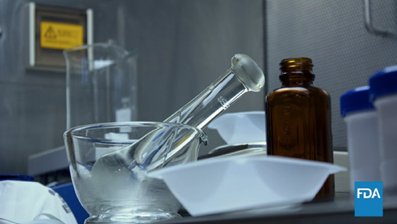As kids are heading back to school, for this #FDA #SUNDAYTWEETORIAL I’m going to talk about MEASLES and the vital importance of vaccination. You may’ve seen recent news stories reporting cases of measles in parts of the US and EU. Most cases have occurred in unvaccinated people 

In 2018 there have been 124 individual cases of measles in 22 states and D.C. Measles can spread when it reaches a community where there are groups of unvaccinated people. And travelers with measles continue to bring the disease into the United States go.usa.gov/xUzwa 

Measles is caused by the rubeola virus and is highly contagious. It is normally passed through direct contact or through the air. The virus infects the respiratory tract, then spreads throughout the body, causing a skin rash, fever, cough and runny nose. 

Measles has the potential to be life-threatening. According to #CDC, as many as 1 out of every 20 children with measles gets pneumonia, & for every 1,000 children who get measles, 1 or 2 will die from it. go.usa.gov/xUzwC 

Immunization is one of the most effective public health measures for combating vaccine-preventable diseases such as measles. The MMR vaccine prevents measles, mumps & rubella. It is 97% effective against measles with 2 doses, starting at 12 months. bit.ly/2Pjbj4k 

Vaccines take advantage of how the body’s immune system works. When the germ enters the body, the immune system generates a response to fight the infection. The immune system has memory and can come to your defense if the same germ tries to infect the body again.
Vaccines mimic germs. They are made from weakened versions of viruses/bacteria that cause disease. While they trigger the same immune response to convey future immunity, they don’t make you sick.
FDA plays a vital role in ensuring the safety and effectiveness of vaccines used in the U.S. Our scientific experts evaluate medical information and manufacturing data before approving vaccines to make sure their benefits outweigh the risks. go.usa.gov/xPqk8 

Like many medical products, MMR vaccine has known potential side effects, but they are generally mild and short-lived, such as rash and fever.
#FDA and numerous public health agencies around the world evaluate the safety of vaccines extensively on an ongoing basis. Vaccines currently administered to children in the United States have been found to be safe both by agencies in the US and overseas. 

Some people have concerns that autism may be linked to MMR or other vaccines that children receive. That has been refuted. There is no credible scientific evidence to support any link between vaccines and autism or other developmental disorders. go.usa.gov/xUzwY
This unfounded claim began many years ago with a short publication reporting a link between MMR vaccine and autism, which was later debunked and retracted by the journal. Among other things, the journal found that the lead author of the study was guilty of professional misconduct
Further, in January 2011, the British Medical Journal (BMJ) published a series of articles that conclude that the data in the original publication were misrepresented or altered. bit.ly/2wsg6JI
Vaccinating against measles not only protects your child, it protects children who can’t be vaccinated, including children with compromised immune systems due to illness, such as kids with cancer who receive chemotherapy. 

In 2016, 91.1% of children aged 19-35 months had received the MMR vaccine, according to the CDC. But pockets of unvaccinated people can exist in states with high vaccination coverage, underscoring considerable measles susceptibility at some local levels.
For information about MMR or other childhood vaccines, visit FDA’s website and talk to your pediatrician. #VaccinesWork go.usa.gov/xUzwg 

The MMR vaccine is one of the most extensively studied medical products. It's safety profile is firmly established over many years in some of the largest vaccine studies ever undertaken. Parents should have confidence #FDA understands the risks and benefits associated with MMR 

To address lingering doubts, the U.S. invested enormous sums in studies to evaluate any link between MMR and autism or other developmental disorders. Parents should have full confidence. This is one of the most extensively studied questions of our time. There is no association. 

I wish everyone a happy, healthy school year. #FDA will continue to work hard to ensure the safety & quality of vaccines we use to protect our children. I have young kids too. Nothing is more important. This is one of my highest obligations. The MMR vaccine is critical. Be safe. 

• • •
Missing some Tweet in this thread? You can try to
force a refresh















